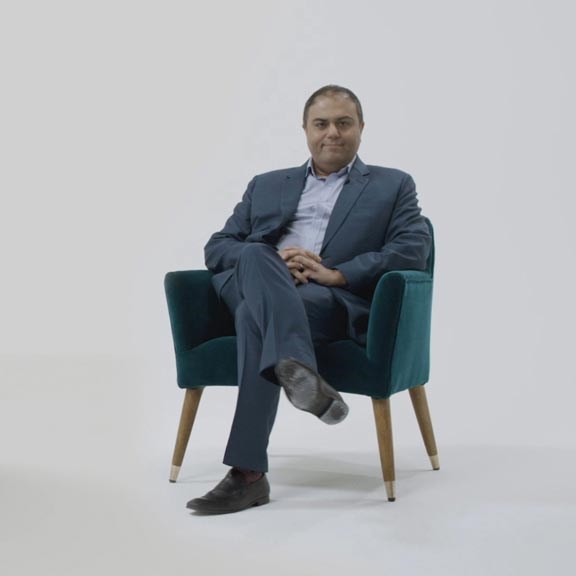Prostate surgery and laser prostate surgery at Spire Hartswood Hospital
Treatment to reduce an enlarged prostate that is causing problems.
At Spire Hartswood Hospital, our highly skilled surgeons and expert aftercare team offer prostate surgery to relieve symptoms associated with an enlarged prostate.
Prostate enlargement, or benign prostatic hyperplasia (BPH), can be treated by removing or destroying part of the prostate tissue that’s laying on your bladder or urethra.
Sometimes also called
- Transurethral prostatic resection
- TURP procedure or TURP surgery
- Transurethral resection of the prostate (TURP)
- Laser prostate surgery (HoLEP or GreenLight)
- UroLift®
- Aquablation® therapy
The procedure(s) listed above are examples only and may not be available at all Spire hospitals.
At a glance
-
Typical hospital stay
2 nights -
Procedure duration
1-3 hours -
Type of anaesthetic
General, spinal, epidural or local -
Available to self-pay?
Yes -
Covered by health insurance?
Yes
Why Spire?
- Fast access to diagnostic tests and scans
- Specialist in a wide range of treatments
- Flexible payment options to make it easy and more affordable
Prostate surgery: what to expect at Spire Hartswood Hospital
Spire Hartswood Hospital is a well-established provider of private hospital treatments. Patients come to us from Brentwood, Billericay, Chelmsford, Basildon, Romford, other parts of Essex and South East England.
Our urologists are specialists in men’s health and have expertise in prostate surgery. Our dedicated nurses will provide you with expert aftercare, to help you get back to your usual activities as soon as possible.
You can expect fast access to diagnostic tests and scans, consultations and treatments. It usually takes a week from referral or diagnosis by your consultant to having prostate surgery.
How much does Prostate surgery and laser prostate surgery cost at Spire Hartswood Hospital
We offer many ways to pay and our inclusive prices and access to payment plans make it easy and more affordable, even if you don’t have medical insurance.
The price shown is the ‘from price’ (ie the minimum cost of the procedure). Please note that for some procedures the actual price you are quoted may vary significantly and can increase depending on your choice of Consultant (who is an independent practitioner and not an employee of Spire). The fees charged by Consultants and Anaesthetists are set independently and are outside the control of Spire. The price may also vary depending on the type of anaesthetic, implant or drug used, and your medical history.
Spire Hartswood Hospital can provide you with a single, fixed price for your procedure so there are no surprises. Please read Spire Healthcare's terms and conditions for full details of what’s included and excluded in your fixed price when paying for yourself. Finance options are available through our partner Omni Capital Retail Finance Ltd, 10 Norwich Street, London, EC4A 1BD.
Procedures offered for prostate surgery at Spire Hartswood Hospital
We have a range of procedures available for prostate surgery. All have their own potential benefits and risks which your consultant will discuss with you.
The type of anaesthetic you need varies depending on the procedure you need. It may be:
- A general anaesthetic meaning you’re asleep – this is most often used
- A spinal or epidural – where you can’t feel anything from the waist down
- A local anaesthetic – you’ll be awake but you won’t be able to feel anything in the area being operated on
Transurethral resection of the prostate (TURP)
- A special instrument is passed through your urethra and a small, electrically-heated wire is used to trim small pieces of prostate tissue
- Performed under general anaesthetic
- You’ll need a urinary catheter for around one to three days after the operation
Laser prostate surgery
- A specialised tool is passed through your urethra and a laser (eg a HoLEP Holmium laser or GreenLight laser) which generates intense heat is used to trim small pieces of prostate tissue
- Performed under general anaesthetic
- You usually need a urinary catheter for around one to three days after the operation, but it may be for a shorter time than with a TURP
Your consultant will recommend a treatment based on your condition and overall health.
Find a consultant at Spire Hartswood Hospital
Preparing for prostate surgery at Spire Hartswood Hospital
Coming into hospital
At Spire Hartswood Hospital, we’re very easy to reach from the A12, A13, M25 and M11, based just 25 miles from London Stansted Airport and 20 miles from central London. There’s free parking available for you and your visitors.
Meeting your consultant
You’ll meet your consultant in one of our consultation rooms. You’ll discuss:
- Your symptoms and medical history
- If your consultant requires any additional tests or scans to help plan your treatment
- Alternative treatments or lifestyle changes which may help
- What the treatment involves and procedure options
- Potential benefits and risks of prostate surgery
You may also need a pre-operative assessment with a specialist nurse before going ahead with treatment. This is to ensure you're fit and well enough for surgery.
Prostate surgery: your procedure
Prostate surgery takes about two hours.
After surgery, you may need a urinary catheter until the swelling in your urethra has gone down, allowing you to pass urine normally again. This will be taken out by one of our nurses before you leave hospital – which is usually two days after your operation. During your stay, you’ll have your own en-suite room which will have:
- A wall-mounted TV
- WiFi access
- An en-suite bathroom
- Comfortable chairs for your visitors
Prostate surgery: your recovery
As expected after surgery, you’ll feel some pain afterwards. Our nurses will help you manage this by giving you painkillers and advice about what over-the-counter medicines you can take after you leave hospital.
Although the recovery time varies depending on the procedure you've had and your overall health, here’s a guide to recovery timeline for transurethral resection of the prostate (TURP) – the most common procedure:
Treatment and recovery timeline

1-3 days
Catheter is removed and you can leave hospital
1-3 weeks
Driving and gentle walking
3-4 weeks
Back to desk-based job and sex if you’re comfortable enough
4-8 weeks
Full recovery
-
1-3 days
Catheter is removed and you can leave hospital
-
1-3 weeks
Driving and gentle walking
-
3-4 weeks
Back to desk-based job and sex if you’re comfortable enough
-
4-8 weeks
Full recovery
The treatment described on this page may be adapted to meet your individual needs, so it's important to follow your healthcare professional's advice and raise any questions that you may have with them.
How to get to us
Spire Hartswood Hospital is based in quiet and peaceful grounds, just two miles from the M25 motorway and easily accessible from other major roads like the M11, A12 and A13. It is 25 miles from London Stansted Airport and 20 miles from central London.
Spire Hartswood Hospital,
Eagle Way
Brentwood
Essex
CM13 3LE
Get in touch
Important information about COVID-19 tests
COVID-19 testing or antibody tests are not available as a standalone service at Spire Hartswood Hospital.
Sources
Prostate Cancer UK TURP factsheet
http://www.baus.org.uk/_userfiles/pages/files/Patients/Leaflets/TURP%20for%20benign.pdf
https://www.nhs.uk/conditions/transurethral-resection-of-the-prostate-turp/
https://www.nice.org.uk/guidance/mtg23/chapter/1-Recommendations
https://patient.info/doctor/benign-prostatic-hyperplasia
https://www.baus.org.uk/_userfiles/pages/files/Patients/Leaflets/HoLEP.pdf



